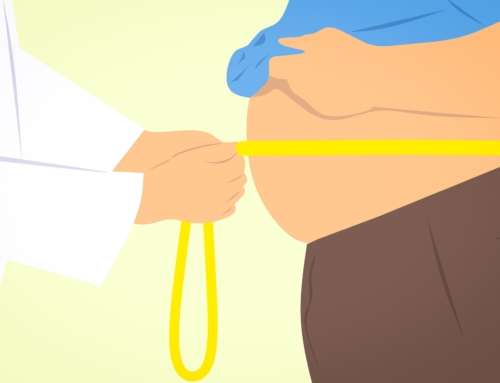Hmmm. A hormone that by design is to keep us fat. At first your knee jerk reaction is “no thank you” but when you learn that this hormone is released by your fat cells with the main goal of maintaining fat stores for survival during times of starvation we have to step back and agree we need this hormone around. However, we can become resistant to it and that’s when things get off track. The hormone I am talking about is Leptin and Leptin resistance.
Leptin is produced by our fat cells and helps maintain your weight by signaling the brain to alter food intake and help control energy expenditure so you don’t have a hunger response when the body doesn’t need energy. In a properly functioning body, leptin is like a see saw. Low levels of leptin cause an increase in appetite. High levels of leptin cause a decrease in appetite. Think of how many times you are doing great losing weight which in turn will decrease leptin and then you completely stall out or start having major cravings. It’s all because of leptin! Now you know one of the reasons why it is so hard to lose those last few extra pounds.
If this was as simple as a see saw then we would just raise leptin levels and not be hungry and lose weight, right? Unfortunately, it’s not that easy or straightforward. Raising leptin does lower the appetite initially but if have excess fat cells something else happens. Leptin levels are directly correlated to the amount of body fat you have. The more fat… the more leptin circulating around. The brain eventually quits responding to the leptin signal and you now have “leptin resistance”. Since the brain isn’t receiving the leptin signal it thinks the body is starving so keeps sending an “eat” signal. The fat cells keep producing more leptin and you keep eating even though you have excess fat stores already. High leptin also tells your body to conserve energy expenditures and makes you burn fewer calories at rest. This is very similar to insulin resistance in a diabetic. Unfortunately, it doesn’t take as many extra fat cells as you would think to get into this leptin resistance state. If you have excess fat in the middle you most likely have leptin resistance.
I want to point out that leptin not only affects our weight but it has been associated with cognitive changes in anorexia, depression and Alzheimer’s. It plays a role in severe morning sickness of pregnancy, polycystic ovary syndrome, bone density, and the immune system. There is also a connection with high leptin and osteoarthritis. It was originally thought that an obese person’s joints hurt because of the excess weight but studies have since shown that the increased adipose tissue releases leptin and other inflammatory particles that get into the joint (in the synovial fluid) and create inflammation. The cartilage cells in the joint itself also produce leptin adding to the problem.
Take home point, decreasing leptin resistance is important for so many issues.
Let’s dive into how to decrease leptin resistance which will help you with your weight loss goals as well as positively impact cognitive function and joint pain. READ ON…
When you are leptin resistant the brain literally thinks the body is starving so it sends a signal to eat more and lower the energy expenditure to preserve our body weight. The body is in a never ending cycle of a high signal to eat which creates more fat cells which causes more resistance while the fat cells are creating more leptin. Leptin doesn’t act alone though in this signaling but for now we are going to keep our focus on this one hormone and how to reverse leptin resistance. Anything that helps lower leptin will help start trying to break this cycle. The more changes you can make all at the same time the better it will get.
- Change your diet. Studies are showing our high carb & high sugar diets cause more inflammation which interrupts the signaling mechanism for leptin and helps create more leptin resistance. I came across a study that was looking at sugar consumption in childhood and was correlating it to more obesity problems in adulthood. They didn’t look at the leptin issues but it made me wonder if our diets as a child don’t set us up for difficulty with weight loss as an adult because of leptin resistance. Hmmm? Here are key ways to change your diet…
- Increase fiber intake
- Decrease sugar consumption
- Increase protein intake
- Decrease carbohydrate counts in general (this is one reason the keto diet works so well)
- Yep, just do it.
- Sleep: studies show sleep deprivation decreases leptin which will increase your hunger and slow your metabolism. It also increases resistance to insulin and increases your stress hormones making weight loss even harder. I know our goal is to lower the leptin level but this is a wrong way to do it and will actually backfire.
- Intermittent fasting – this has been in the news more and more. It is done a lot of different ways but typically you eat during an 8 hour window and fast the remaining 16 hours. It won’t work if you keep your diet the same though. If you combine intermittent fasting with calorie restriction or a keto diet then the results can be impressive.
- Improve your hormonal balance by optimizing testosterone in men and estrogen in women. Careful here though because it can easily cause other issues.
- Take a supplement that helps the leptin balance. I have tried many different supplements with claims to fame in this department and I have not found the holy grail that you just take one little pill and it completely reverses your problem and weight just falls off. However, I have found a few that when combined with the changes I have mentioned above there is an additive benefit resulting in more of an improvement than those changes alone. My current favorite product is Leptin Manager by Xymogen (click on the link to see it in our store). I used this in conjunction with our keto diet and now you know why I thought addressing leptin was so important! The longer you take it the more it helps. This product has also been useful with the osteoarthritis caused by increased leptin, too.
You also need to work on other factors that increase Leptin in a negative way.
- Address sleep apnea: if you have sleep apnea leptin will increase. This is one of the reasons why people with untreated sleep apnea have more trouble losing weight.
- Address any blood sugar issues because high insulin increases leptin, too.
- Decrease chronic stress
- Work on your thyroid balance. Low levels of T3 will increase leptin. Your standard thyroid medications like Levothyroxine and Synthroid are T4 only preparations and most people with thyroid issues have trouble converting T4 into T3 therefore ending up with low levels of T3.
- Address inflammation in your body because it alters the signal between Leptin and the brain and increases resistance.
- Stop Yo-yo dieting because this increases leptin resistance. I hear this all the time when people do extreme diets over and over again. Eventually, the same diet has less effect.
I should mention that leptin levels can be measured in the blood but again, if you have excess fat then you almost always have high leptin levels. Keep in mind, leptin resistance doesn’t occur overnight so it will take a commitment to changes for several months before significant long-lasting results will occur but they will get there if you go the distance!
To your health,
Laura









